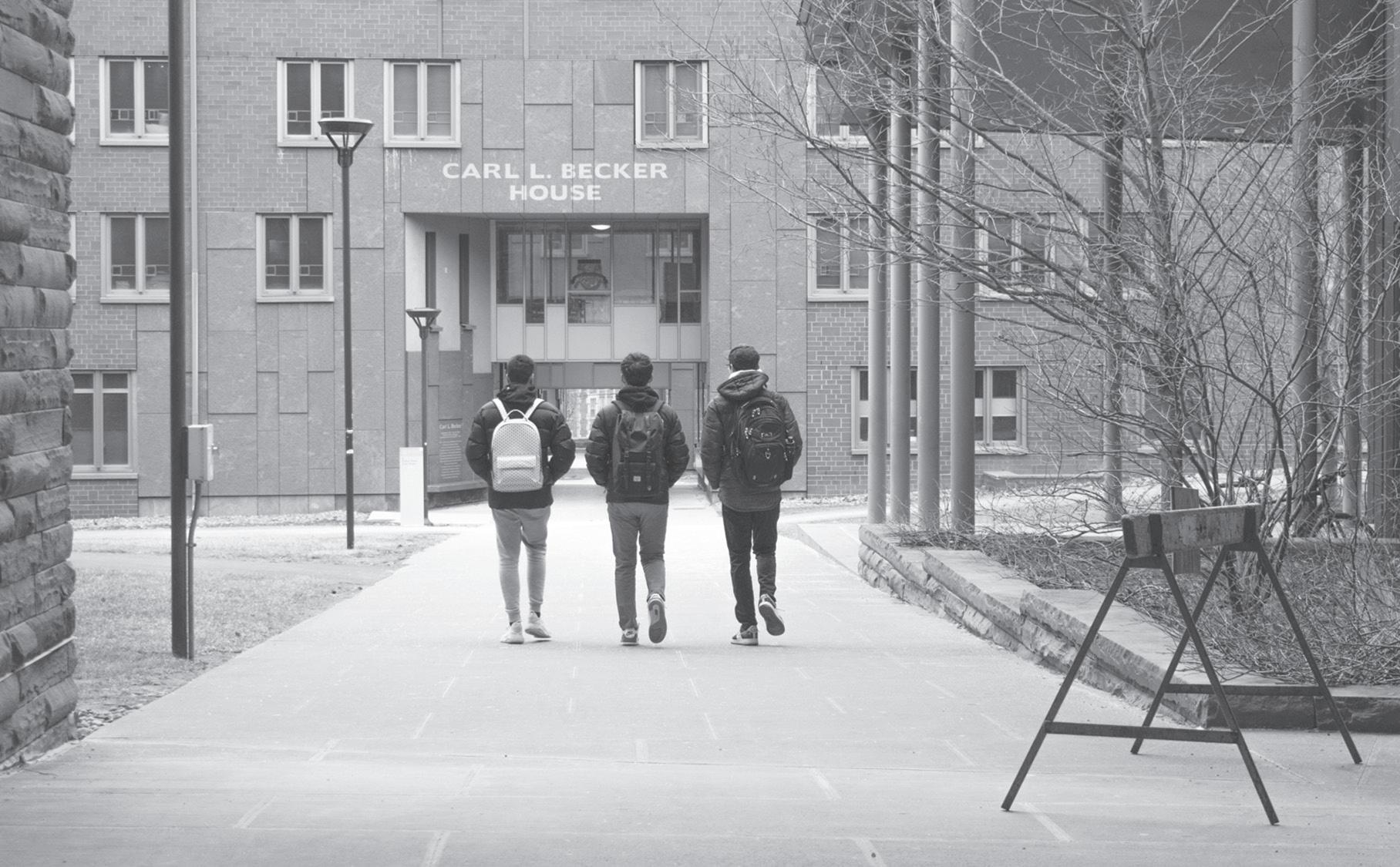
1 minute read
Controversial Panel Discusses Settler-Colonialism
By ERIC REILLY Sun News Editor
The Mario Einaudi Center for International Studies hosted a panel on Tuesday on settler-colonialism and indigeneity in the contexts of North America and Palestine. The event, which was held on the Jewish holiday of Purim and centered on settler-colonialism — a concept that has been used in criticisms of the Israeli government — faced pushback from Jewish community members.
The panel featured Syracuse University Prof. Dana Olwan and Patty Krawec, author and co-founder of the Nii'kinaaganaa Foundation, a non-profit that collects money and distributes it to Indigenous-led groups. Mohamed Abdou, global racial justice post- doctoral fellow at the Einaudi Center, served as moderator for the event.
Olwan and Krawec traversed themes of settler-colonialism, indigeneity, religion and solidarity through a series of questions posed by Adbou. The panelists addressed how these concepts apply to both Turtle Island — an indigenous term for North America — and Palestine.
Krawec, a member of the Ojibwe people — an indigenous tribe native to the northeastern U.S. and Canada — focused her contributions on building community. She expressed frustration with her fellow Ojibwe people, urging them to be more welcoming to settlers, arrivants and newcomers who she thinks often align with the nation-state that gives them a home.
“We need to build worlds where other people will be safe within them, where our Ojibwe world exists, but you will be safe in that world if you need to be there,” Krawec said. “We can exist together without needing to impose on each other.”
Olwan similarly grappled with the role of the nation-state when considering the context of Palestine.
“Within Palestinian struggle, for us the violence of nationalism and the violence of the nation-state is super clear, and we understand its harm.” Olwan said. “For many of us, we actively refuse to tie our sense of liberation within the boundaries of a so-called ‘Palestinian nation-state’ that the Israeli state will agree one day to quote-unquote ‘cede.’” conveyed their version of the proposal — Resolution 5 — to President Pollack on Thursday, March 2.
According to an email obtained by The Sun, President Pollack responded to Duncan Cady ’23, chair of the U.A. and an S.A. undesignated representative-at-large, who also co-sponsored Resolution 5 and Resolution 20.
On Monday, the Graduate and Professional Student Assembly also passed Resolution 7, their version of the proposed resolution. Resolution 20 aims to implement vending machines with nonprescription medicine and emergency contraception around campus.

Several members of the S.A. — including Sanvi Bhardwaj ’24, the College of Human









